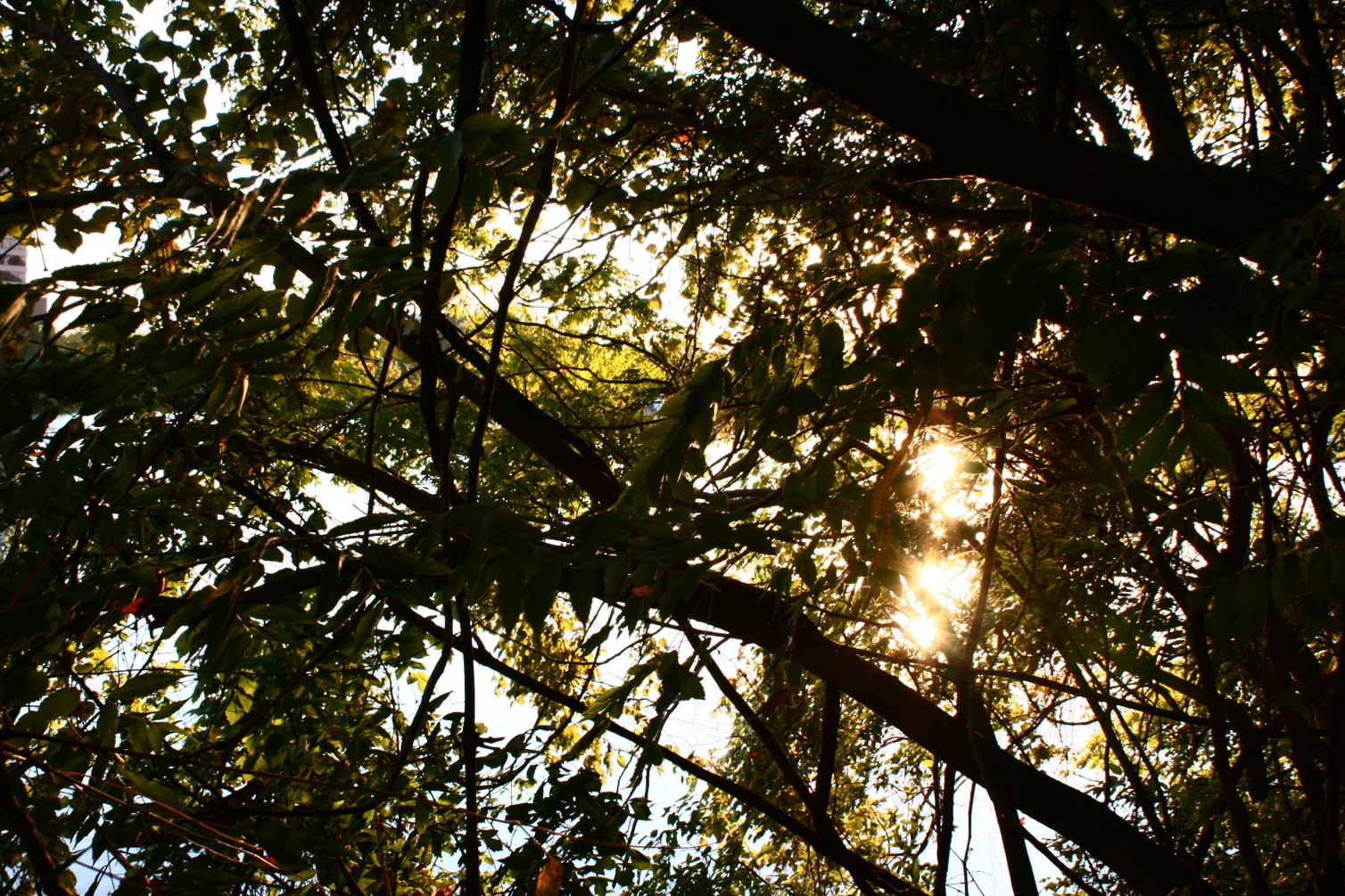We watch the trees the way we watch the birds,
sitting more quietly than we have to,
though trees do not respond to sudden motion,
a crossing fox, a knock on the window,
or anything less momentous than the day.
Everything comes to them, the light, the rain,
so they do not move. They travel in place, very slowly
growing deeper, broader, higher.
At a fork in the road, we would have to choose,
but a tree becomes the fork. We turn to look back,
sad to remember so little of the way,
but a tree is all the roads it ever took.
Each branch is a different notion
of where the sun will be, each leaf turns to it.
Which is the best way to the light?
Our question is too swift for the trees to hear but
their form is the answer, All the ways at once.
Words are for creatures willing themselves to the future,
subjects through verbs to objects.
Eyes, too, are for creatures that move. Eyes, words
reach into darkness, into the future
to find where the stone is, where the path bends left,
lest we go wrong, lest we stumble.
But everything comes to the trees, the light, the rain.
You do not need eyes or words unless you move,
unless you might go the wrong way,
unless you might get ahead of yourself,
and stumble, unless you might collide with your neighbor,
unless you are watching your neighbor watching you
and stumble.
The ancient Indo-European root of tree
is deru-, meaning steadfast, firm,
which gives us not only tree but trust and true.
Trees interleave with the leaves of their neighbors,
their roots blend with the roots of their neighbors,
Their steadiness, like ours, comes from roots and neighbors.
Like us, they are broad as they are deep.
Like us, they reach outwards as much as down,
but trees do not stumble. (They fall, but only once.)
We watch the trees the way we watch the birds.
They are mockernut maple hornbeam elm,
though it is natural just to say the trees,
since in Society, as Coleridge says, we see difference,
but in Nature, everywhere likeness.
Their branches blend in a haze, a wall, a wave of treeness
that is faceless. Sitting among them, we are faceless.
When we see them, there are trees behind our eyes.
When we breathe in we are breathing the dark of trees.
James Richardson’s most recent collection of poems and aphorisms is For Now. As If was just reprinted in the Carnegie Mellon Classic Contemporaries Series. He lives on a wooded hillside in central New Jersey.




